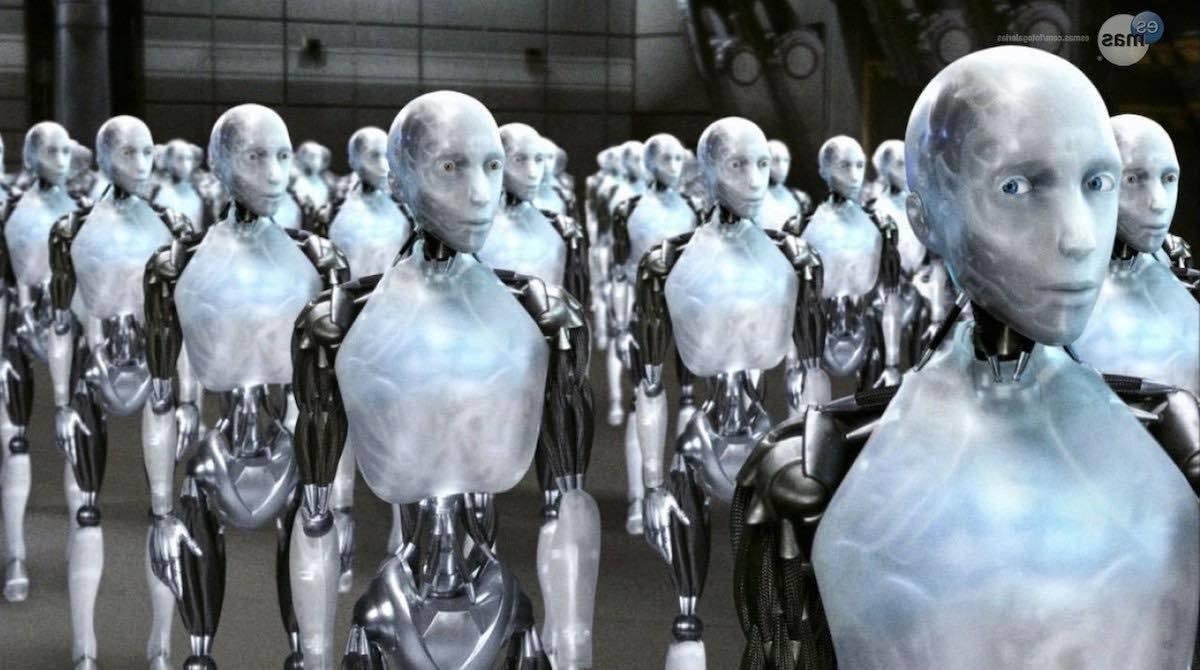COVID-19 Will Accelerate March Of The Robots Tyler Durden Tue, 06/23/2020 - 22:45
Authored by Gordon Watts via The Asia Times,
Tech revolution threatens an unemployment crisis in China and developed world after gathering pace during pandemic
They have been compared to quantum leaps in humanity’s historic journey. But they are more like Grand Canyon-style jumps in our evolution.
During the past 200 years, technological revolutions have expanded the borders of globalization and have dragged millions of people out of poverty. Yet they have come at a price.
The Fourth Industrial Revolution will be no different.
Already the landscape is changing dramatically with China at the forefront of this brave, new world for some and a nightmare for others.
“China is using automation on a scale like no other country. From AI news anchors on [state-run television] to one-minute [health] clinics to robot-run factories, China is using artificial intelligence and robots to take over the entire spectrum of human capabilities,” Abishur Prakash, a geopolitical futurist at the Center for Innovating the Future, a strategy consulting firm, told Asia Times.
“This could transform politics in the country. It was city-jobs that drove urbanization in China. Now, however, if the blue-collar and white-collar jobs are both being automated, reverse urbanization may follow. This will create a new kind of economy for China, which in turn could change domestic politics, trade deals and foreign policy,” he said.
The “sheer scale” of Beijing’s ambitions are immense. Investment in science and technology research in the world’s second-largest economy was US$355.4 billion last year or 2.5% of GDP, official data revealed.
Only the United States spent more as China edged past Japan.
Moveover, funding looks certain to accelerate in 2020 with 3 trillion yuan, or $423 billion, earmarked for major projects in response to the Covid-19 pandemic.
Up to 17.5 trillion yuan, or $2.47 trillion, will be pumped into ramping up infrastructure spending in the high-tech sector during the next six years, the Shanghai Securities News reported in May.
Priority funding in the next 12 months will go to 5G base stations, EV charging outlets, big data centers, AI and the industrial internet, such as robotics.
Also, unlike previous rounds of traditional infrastructure investment on roads, bridges and high-speed rail networks, private companies will be heavily involved in the mix.
Still, the pace of change will generate a different set of problems, including the specter of unemployment.
“China has dealt with large-scale layoffs or economic downturns by creating a massive state-run construction force. But, now, the people that may lose their jobs to automation may be the educated, skilled class in cities like Shenzhen and Shanghai. What’s China’s plan for them?,” Prakash, the author of The Age of Killer Robots, said.
Since 2014, the nation’s automation industry has expanded by 28% with 650,000 robots going online in 2018.
Yet this has generated a backlash from the Chinese public. A study released to the media by Spanish university IE showed a rise in “robophobia” during the coronavirus crisis.
Before the pandemic infected more than nine million people worldwide, only 27% supported limited automation in China. That number has more than doubled to 59%, with the Chinese just behind the French as the most hostile to automation.
“The changing nature of work is generating fears about mass unemployment. These trends are straining the relationships among citizens, firms and governments across the globe,” the World Bank stated in a report, entitled the Changing Nature of Work, last year.
Even so, the benefits of the controversial Made in China 2025 digital program proved vital during the Covid-19 crisis.
Artificial intelligence, big data, cloud computing and 5G “effectively improved the efficiency of the country’s efforts” in tackling the epidemic.
“It [was crucial] to monitoring virus tracking, prevention, control and treatment, [as well as] resource allocation,“ Qi Xiaoxia, the director-general of the Cyberspace Administration of China’s Bureau of International Cooperation, said in a commentary published on the World Economic Forum website in April.
Even basic models of service robots appeared to play their role in delivering meals and cleaning hospital corridors.
“Admittedly, the acceleration of automation may reduce certain jobs on an individual basis. Some people may suffer, which is the inevitable cost of technological transition and advancement … still, new jobs will be created to replace those that have been lost,” Jon Yuan Jiang, an assistant researcher at the Queensland University of Technology in Australia, told Asia Times.
But concerns persist. In developed and developing economies, the fallout from the coronavirus catastrophe threatens to trigger economic pandemonium and ballooning unemployment across the globe.
The urban jobless numbers in China have been on the rise since the start of the year. For the upper echelons of the ruling Communist Party, unemployment is a notoriously sensitive subject.
Indeed, the Fourth Industrial Revolution risks adding to the upheaval.
“Already, it’s projected that 51 million jobs in Europe could disappear because of automation [with Covid-19 being a factor]. The point is, the appetite for automation is rising and it’s no longer limited to just entry-level jobs,” Prakash, of the Center for Innovating the Future, said.
“It’s no longer just about janitors or truck drivers or factory workers. Everyone could be on the chopping block because the pandemic has fundamentally changed how businesses operate. There are now huge geopolitical risks as automation takes off,” he added.
Possibly, a revolution against a revolution?
https://ift.tt/2YqZ1OM
from ZeroHedge News https://ift.tt/2YqZ1OM
via IFTTT


0 comments
Post a Comment